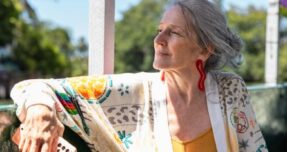Jude was referred to Juno due to her experience of significant family violence, including coercive control perpetrated by her husband/ the father of her children. He had been remanded in custody at the time of referral.
At the time of referral, Jude and her children were living in a property owned by the perpetrator and needed to relocate as a matter of safety, before he was released.
In addition to the usual obstacles women face when leaving a violent relationship, significant language barriers made it especially difficult for Jude, a native Turkish speaker, to access services and support independently from her husband/ the perpetrator. Limited English-speaking skills can also increase social isolation, and the inability to access resources without the perpetrator as a result of language barriers and isolation is common form of coercive control for the culturally and linguistically diverse clients Juno supports.
Jude was receiving JobSeeker, but her husband/ the perpetrator controlled all the families’ finances, such as the mortgage payments and the bills. This is a common feature of coercive control, known as financial abuse, which undermines women’s economic security both during or after a violent relationship by controlling spending, withholding or depriving a woman of finances. Juno also worked with Jude to understand her rights when it came to finances and supported her to achieve more financial freedom.
Coercive control is an umbrella term that refers to an ongoing pattern of controlling and coercive behaviours that are not exclusively physical but can pervade an individual’s daily life with a devastating impact. – Australian Women Against Violence Alliance
We assisted Jude and her family by completing an application for social housing and securing a three-bedroom transitional property that the family could move into, increasing their security and stability and, from there, supporting their journey to recovery.
Juno was also able to advocate with the children’s school to provide the family with more support, including an interpreter so that Jude could communicate with the school about the children’s needs. We also advocated for access to the school counsellor for her children, and financial support for school activities and uniforms.
“The waiting time was terrible, and it took so long. It really stressed me out a lot because I had to do so much on my own because of COVID-19. I had to pack, move, clean, and set up the house. My case manager at Juno helped me a lot. Personally, it was a really unpleasant journey for me. Juno have been most helpful. My case manager found me a place to live and helped me with packing and furniture. When I was worrying about my housing, they helped and supported me. I am now worried about him getting out of prison. Juno have a caring attitude and it is greatly appreciated.”
Jude continues to be supported by Juno and has received extensive safety planning and installation of security measures at the property to help her continue maintaining her safety. Juno will keep working with Jude and her children to obtain longterm social housing so that she and her family can live independently in the community and thrive.


